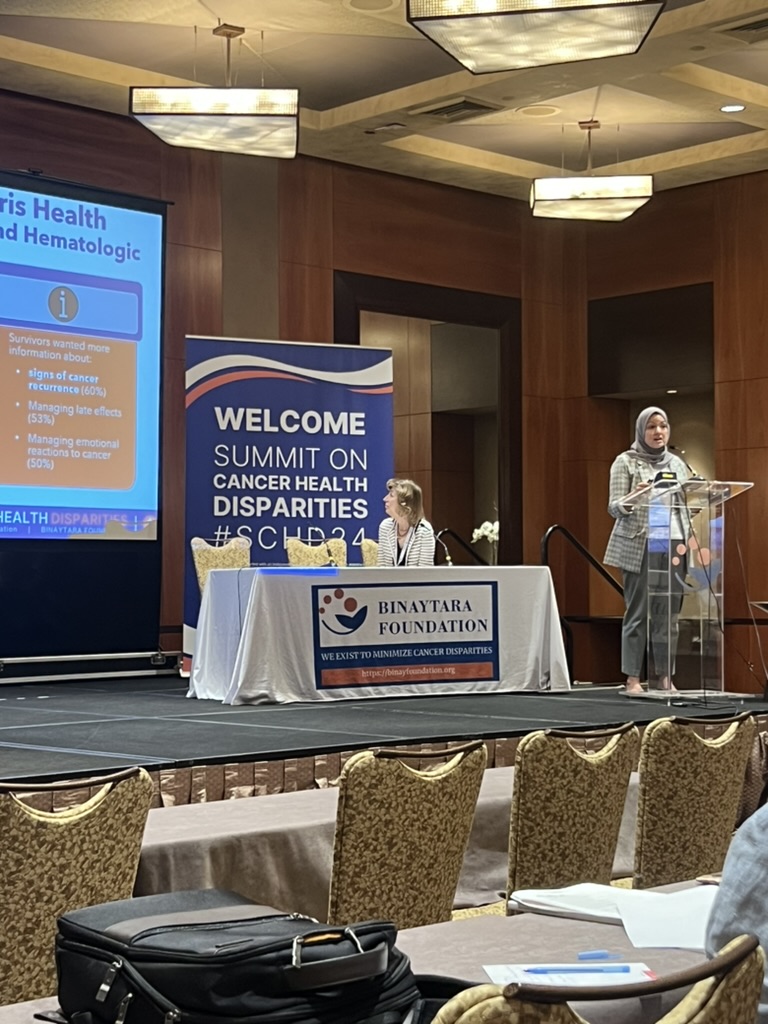Primary Care Partnership to Improve Comprehensive Survivorship Care
By Dr. Kelly Meza
OPTIMISE, the Oncology Primary Care Partnership to Improve Comprehensive Survivorship Care, leads the charge in tackling cancer disparities and improving care coordination for medically underserved patients at Harris Health System, Houston. In the realm of cancer care, patients often grapple with additional health conditions beyond their cancer diagnosis, such as hypertension, chronic kidney disease, diabetes, COPD, and rheumatoid arthritis. Notably, 70% of cancer patients face at least one comorbid condition, leading to fragmented care and challenges in self-management, particularly among medically underserved populations.
At Harris Health System, where 42% of the population identifies as Hispanic/Latinx, data reveals significant gaps in chronic disease management and post-treatment care. Of 136 patients with unmet needs, 71% had chronic comorbidities, and 73% struggled with self-management during treatment. Lack of understanding about cancer surveillance schedules and treatment-related risks further compounded these challenges, highlighting the need for comprehensive support and education.
Provider perspectives, gleaned from surveys of oncologists and primary care providers (PCPs), underscored existing gaps in inter-professional collaboration and dissatisfaction with current care processes. Notably, PCPs expressed greater dissatisfaction than oncologists, signaling a need for enhanced communication and coordination between specialties.
The premise of the OPTIMISE study, led by Dr. Martha Mims, lies in improving care transitions and outcomes for medically underserved cancer survivors with comorbid conditions. This pragmatic randomized controlled trial aims to address barriers to comorbidity management through a multilevel intervention targeting patients, providers, and healthcare systems.
Key features of the OPTIMISE Enhanced Care Pathway include the integration of oncology nurse navigators, treatment plan dissemination to PCPs, distress screening, survivorship care planning, and risk-stratified shared care surveillance. By streamlining communication and care processes, OPTIMISE seeks to enhance patient self-management and quality of life throughout the cancer care continuum.
The study, which enrolled 220 participants to date, predominantly comprises Hispanic/Latinx individuals, with breast and gastrointestinal cancers being the most prevalent. Insights gleaned from the project underscore the significance of a cultural shift towards shared care and the pivotal role of physicians and nurses in driving progress at Harris Health System.
As OPTIMISE enters its third year, it underscores the importance of continuity of care from cancer diagnosis through survivorship, particularly for underserved populations. By enhancing care transitions and fostering collaboration between oncologists and PCPs, OPTIMISE offers a promising model for addressing cancer disparities and improving outcomes in medically underserved communities. If proven effective, this intervention could pave the way for future research and innovations in cancer care delivery, with far-reaching implications for healthcare settings beyond oncology.
Author Bio:
Kelly Meza is an Internal Medicine resident at Baylor College of Medicine, interested on pursuing a career on Hematology Oncology, research focuses on cancer disparities and understudied malignancies.
No conflicts of interest





